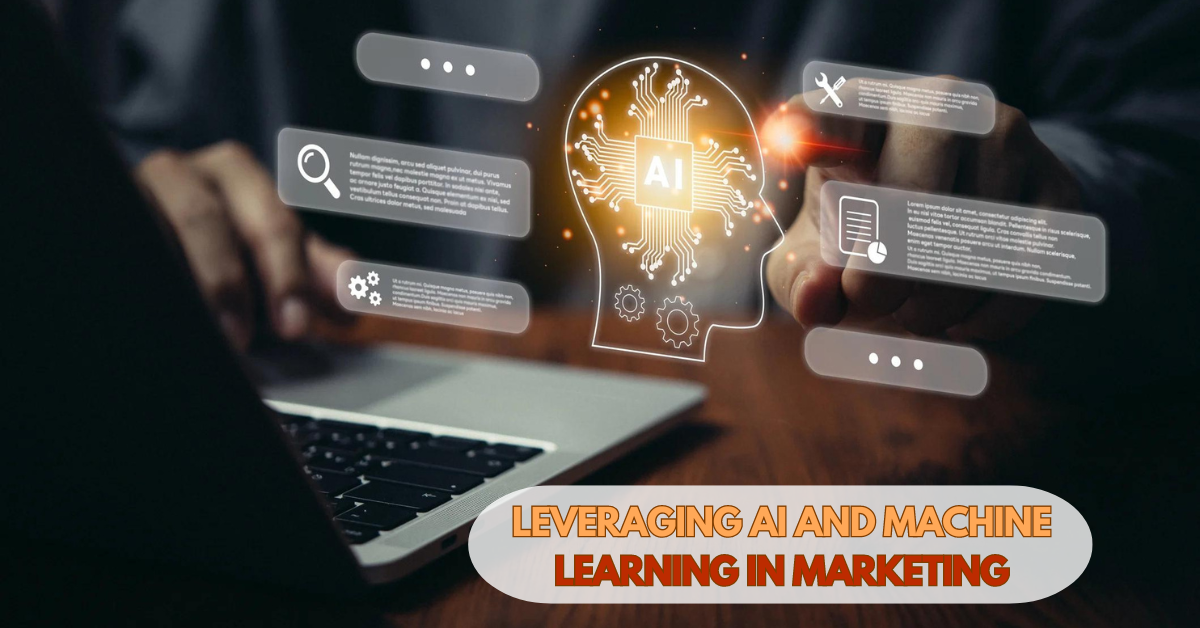- Artificial Intelligence (AI) : refers to the simulation of human intelligence processes by machines, particularly computer systems. These processes include learning (the acquisition of information and rules for using the information), reasoning (using rules to reach approximate or definite conclusions), and self-correction.
- Machine Learning (ML) : a subset of AI, involves the use of algorithms and statistical models to enable systems to improve their performance on a specific task through experience and data without being explicitly programmed.
- AI and ML can analyze vast amounts of data quickly and accurately, uncovering patterns and insights that human analysts might miss. This enhanced data analysis helps marketers understand customer behavior, preferences, and trends more effectively.
- Personalization is key in modern marketing. AI and ML algorithms can tailor marketing messages and content to individual users based on their past behaviors and preferences. This leads to more relevant and engaging customer experiences, increasing the likelihood of conversions.
- Routine tasks such as email marketing, social media posting, and customer segmentation can be automated using AI. This not only saves time but also ensures that these tasks are carried out with precision and consistency, allowing marketing teams to focus on more strategic activities.
- AI and ML can predict future customer behaviors and trends based on historical data. This predictive capability allows marketers to be proactive rather than reactive, enabling them to tailor their strategies to anticipated changes and demands.
- AI-powered chatbots and virtual assistants provide instant customer support, improving response times and enhancing user experience. They can handle a wide range of tasks, from answering common questions to guiding users through purchasing processes.
- AI can generate content at scale, such as product descriptions, social media posts, and personalized emails. Tools like GPT-3, for example, can create human-like text based on input data, making content creation faster and more efficient.
- ML algorithms optimize ad placements and bids in real-time, ensuring better ROI on ad spend. They can analyze which ads perform best and adjust strategies accordingly, making ad campaigns more effective.
- Before implementing AI and ML, it's crucial to define clear objectives. Determine what you want to achieve—whether it's improving customer segmentation, enhancing personalization, or automating tasks.
- Select AI and ML tools that align with your goals and integrate well with your existing systems. Platforms like Google AI, IBM Watson, and Salesforce Einstein offer robust solutions for various marketing needs.
- AI and ML are only as good as the data they use. Ensure you have high-quality, clean data to feed into your AI systems. Regularly update and maintain your data to keep your AI tools performing optimally.
- AI and ML implementations require continuous testing and iteration. Regularly monitor performance, gather feedback, and make necessary adjustments to improve results over time.
In today's fast-paced digital landscape, the integration of Artificial Intelligence (AI) and Machine Learning (ML) into marketing strategies is not just an option—it's becoming a necessity. These technologies are transforming the way businesses understand and engage with their audiences, offering deeper insights, increased efficiency, and personalized experiences that drive better results.
Understanding AI and ML in Marketing
Benefits of AI and ML in Marketing
Enhanced Data Analysis
Personalization
Automation
Predictive Analytics
Practical Applications of AI and ML in Marketing
Chatbots and Virtual Assistants
Content Creation
Ad Targeting and Optimization
Implementing AI and ML in Your Marketing Strategy
Start with Clear Objectives
Choose the Right Tools
Focus on Data Quality
Test and Iterate
Conclusion
The integration of AI and ML into marketing is revolutionizing the industry. By enhancing data analysis, enabling personalization, automating routine tasks, and providing predictive insights, these technologies offer powerful tools for marketers aiming to stay ahead of the competition. As AI and ML continue to evolve, their potential to transform marketing strategies will only grow, making it essential for businesses to embrace these advancements now.

